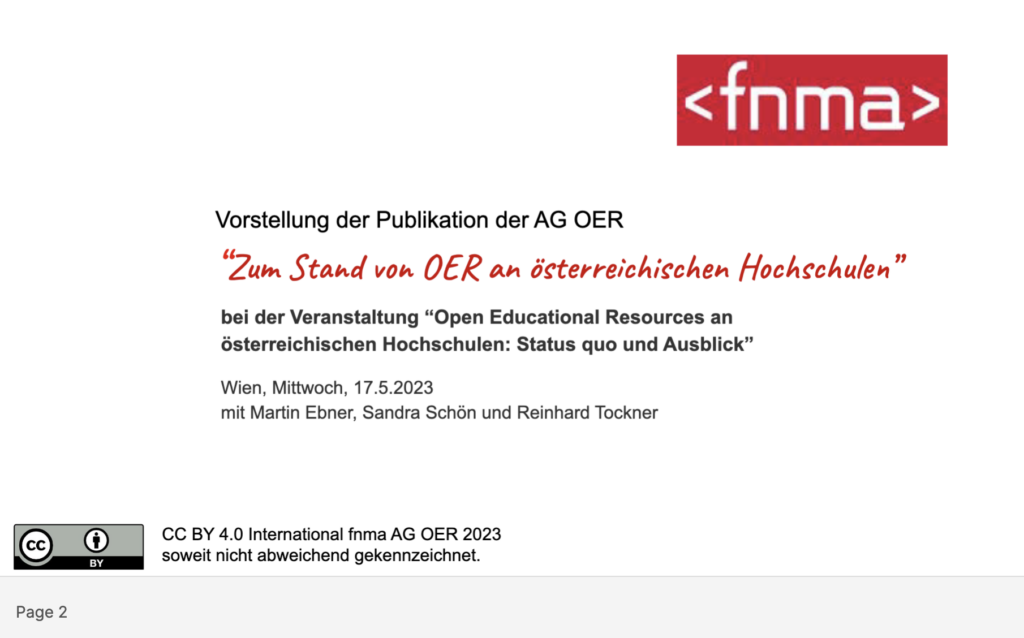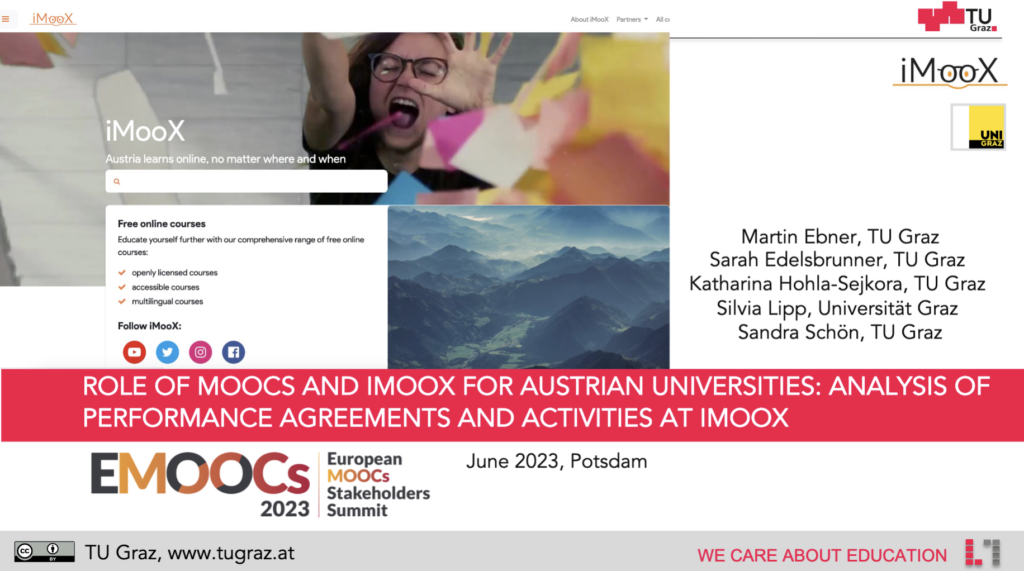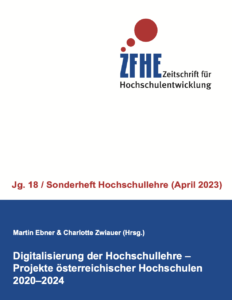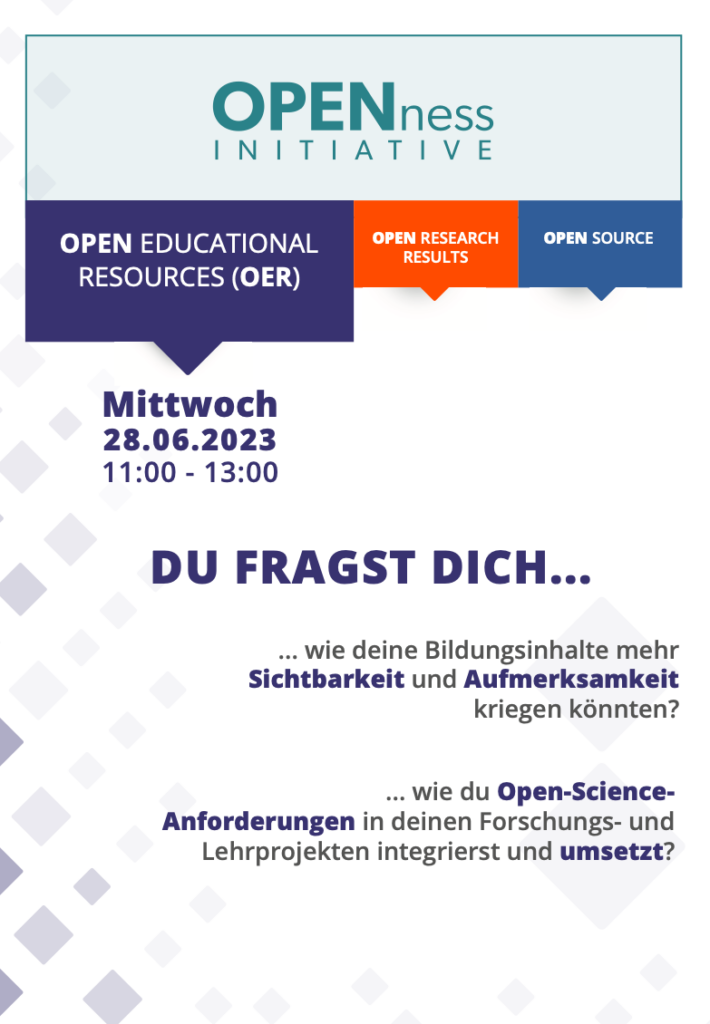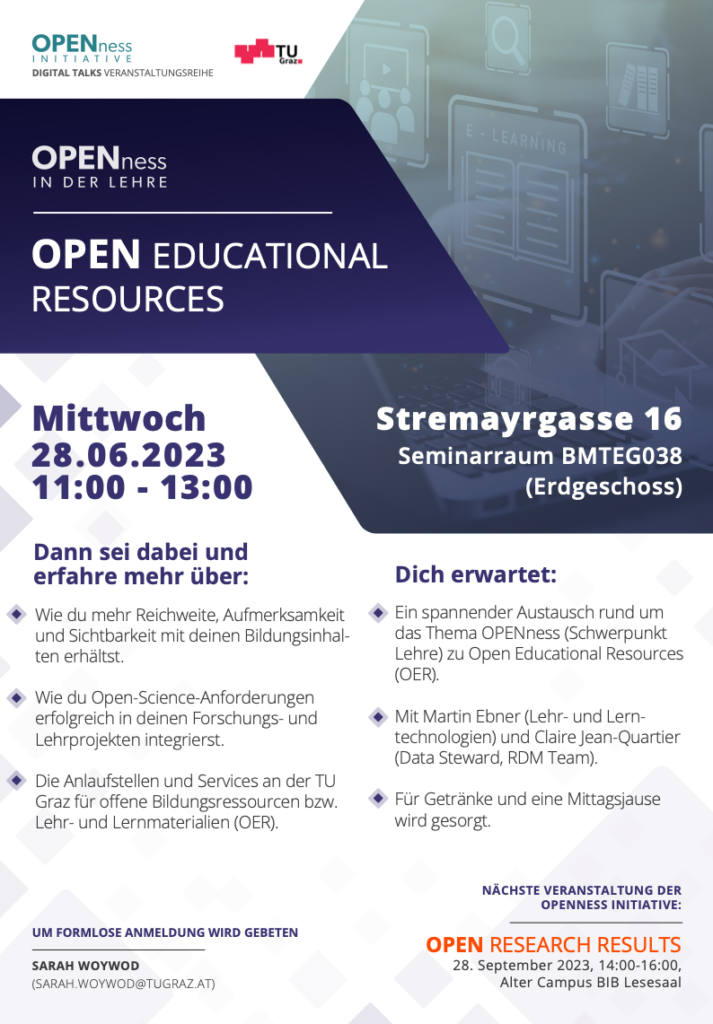Zusammen mit meinen Kolleg:innen haben wir einen Beitrag zu „Erfahrungen bei Studienstart und Aktivitäten der Universitäten zu MOOCs in Österreich“ verfasst, der nun im Rahmen der Zeitschrift für Hochschulentwicklung 18/1 publiziert wurde:
Zusammenfassung:
Im Beitrag werden die Verbreitung und Nutzung von „Massive Open Online Courses“ (MOOCs) an österreichischen Hochschulen aus der Perspektive von Studierenden und Universitäten skizziert. Dazu wurden zwei Analysen durchgeführt. (1) Zum einen wurden Studienanfänger:innen der TU Graz zu ihren Erfahrungen mit Online-Kursen befragt (N=1.207). Die Ergebnisse zeigen einen deutlichen Zuwachs der Online-Lernvorerfahrungen, insbesondere im Vergleich vor und nach COVID-19. Zum anderen erfolgte (2) eine Analyse der aktuellen Leistungsvereinbarungen aller öffentlichen österreichischen Universitäten. Die Nennung der Begriffe MOOCs bzw. iMooX.at in mehr als der Hälfte der Leistungsvereinbarungen verdeutlicht den zunehmenden Stellenwert von MOOCs.
[Artikel @ Homepage ZFHE]
[Artikel @ ResearchGate]
Referenz: Ebner, M., Mair, B., Nagler, W., Schön, S., Steinkellner, I., Stojevic, I., Lipp, S. (2023) Erfahrungen bei Studienstart und Aktivitäten der Universitäten zu MOOCs in Österreich. In: Zeitschrift für Hochschulentwicklung 18/1, S. 111-129

